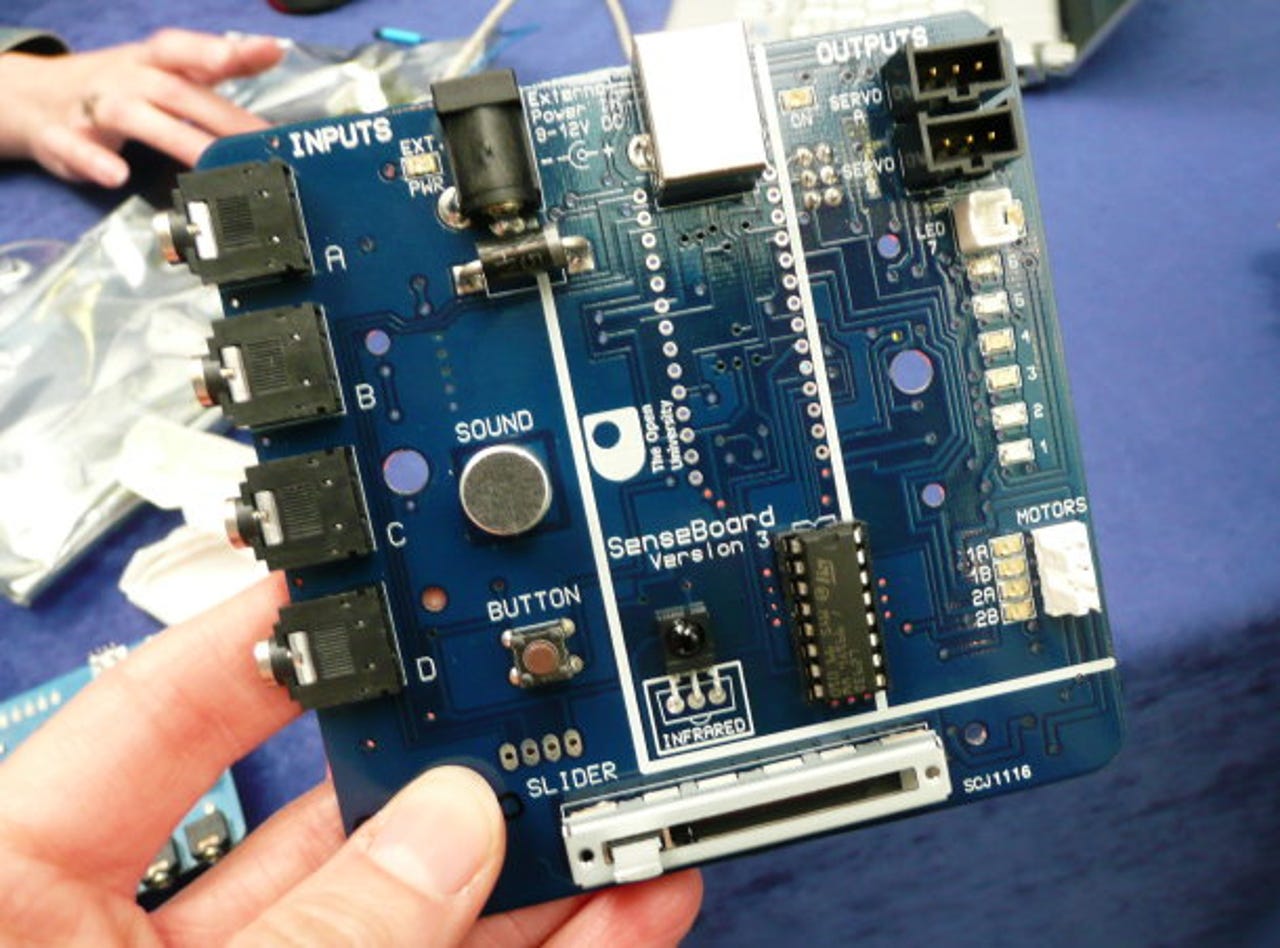Open University revamps degrees with employers in mind - and its own box of tricks

Students encouraged to get creative with ubiquitous computing gadgetry...
The Open University has revamped its computing and ICT degree curriculum, in a move it hopes will make its computing graduates better suited to the needs of UK employers and inspire more students to study IT.
The OU, whose students study remotely rather than by attending a teaching campus, will offer two new undergraduate IT degrees starting in October: a BSc in computing and IT, and a BSc in computing and IT and a second subject, such as maths, stats, design, business or psychology.
The new computing degrees have an emphasis on vocational and work-based learning - allowing students to gain credits towards their degree for previous industry work experience or accreditation and internationally recognised vendor certification.
The OU will offer vendor modules including Cisco Networking (CCNA) and Microsoft server technologies, while a VMware module will be added next year. The university is hoping the addition of vendor accreditation will encourage more employers to pay for staff to study for the computing and ICT degree.
Launching the new curriculum, the OU's dean of mathematical computing and technology, professor Anne De Roeck, said the UK faces an IT skills shortage "operating at all levels".
Research by sector skills body e-skills UK shows 110,000 new IT jobs are created every year in the UK but Kevin Streater, executive director for IT and telecoms at the OU, said employers are struggling to find suitable candidates. "It's really important we have a computing degree that can fill this gap," he added.
Adding the option of a second subject is another way it is aiming to make the degrees more relevant to students and employers by enabling additional relevant business skills to be learned alongside the technical skills, he said.
De Roeck also higlighted the importance of business skills to IT graduates, describing IT as "increasingly acting as the glue that holds enterprise together".
While the number of students studying IT with the OU has remained relatively steady over the years, Streater said the university has some 25,000 students who have "paused" their IT studies. By revamping the curriculum, the university is therefore hoping to encourage more students to complete a full IT degree.
This year IT students make up 10 per cent of the university's student intake with some 263,000 studying the subject. "This is a really key area, so we've got to make sure we get this right," Streater said.

Students on the OU's new ICT degree will be sent this ubiquitous computing device and asked to program itPhoto: Natasha Lomas/silicon.com
The UK has to get students excited about studying technology, he told silicon.com, at the same time as making sure degrees are turning out the kind of graduates the industry needs. "Employability of graduates is the new metric," he said.
When it comes to getting students excited about the potential of technology, the university has a trick up its sleeve - or rather a box of tricks. All computing and ICT students will be sent a box containing a ubiquitous computing device along with a variety of plug-in sensors.
The SenseBoard device, pictured above, plugs into a computer via USB and can then be programmed by using a drag-and-drop programming language called Sense, based on MIT's Scratch.
"Although [Scratch] was invented for children the idea is it gets past the barriers of syntax, strange commands, and it makes it easy to start building programs - you're not confronted with a blank piece of paper," according to Mike Richards, one of the two team chairs for the My Digital Life course module, the first component of the computing and ICT degree.
"Many of the students will never have touched a computer in any creative way at all and we're going to be getting them to programme internet-ready applications in a couple of weeks," he said.